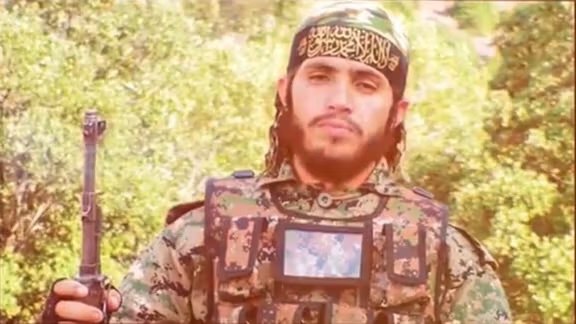RASC News Agency: Recent disclosures from sources closely aligned with the Taliban have quietly confirmed a striking revision to a long-promoted narrative: Abdul Rahman Khalid, the son of Taliban supreme leader Hibatullah Akhundzada, was not, as the group once proclaimed, killed in a heroic suicide operation, but rather died in a botched explosion during a failed assault in Helmand province. This revelation dismantles yet another layer of Taliban myth-making and highlights the group’s enduring reliance on propaganda to sanitize its violent operations. According to internal Taliban accounts and newly analyzed investigative reports, Abdul Rahman Khalid was indeed embedded among a Taliban unit tasked with a suicide mission. However, his death resulted not from a calculated act of self-sacrifice, but from a premature and unintended detonation of explosives during a chaotic battle against Afghanistan’s National Security Forces (ANSF) in the Gereshk district. These events took place on July 26, 2017, amid a broader Taliban offensive targeting government positions.
The Taliban had initially portrayed Khalid’s death as a model of selfless martyrdom an istishhadi act in service of what they call “jihad in the path of God.” Hibatullah himself, in a rare public statement, glorified his son’s death as a sacred mission, leveraging it to strengthen his personal legitimacy within the movement. The Taliban’s state-controlled media machine quickly elevated the incident into a symbol of divine devotion, reinforcing the group’s strategic use of religious rhetoric to mask its incompetence and brutal tactics. But a closer look tells a different story.
The offensive in Gereshk began with the detonation of a car bomb that breached the district’s perimeter, enabling Taliban militants to overrun several security checkpoints. However, they met fierce resistance at the “Bari Base” in the village of Faqiro. The ensuing battle became one of the bloodiest and most difficult engagements for Taliban fighters in the region. In an act of desperation, Taliban commanders deployed Qeta-e-Muntazira, a suicide unit specifically tasked with breaching high-risk targets. Khalid, despite his inexperience, was reportedly part of this elite squad. Rather than dying in a controlled suicide mission, Khalid perished while attempting to install explosive charges on the perimeter wall of the Bari Base. A premature blast killed him on the spot. His death, therefore, was not an act of valor or divine intent it was the result of flawed planning, reckless leadership, and the Taliban’s indiscriminate use of youth in violent operations.
Despite knowing the truth, Taliban leadership doubled down on the fabricated martyrdom narrative. This deliberate misinformation campaign not only sought to sanctify Khalid’s death but also to lionize Hibatullah as a leader whose own family “sacrifices” for the cause a trope widely used in extremist circles to bolster ideological credibility and suppress dissent. In Taliban ideology, the term istishhadi refers to suicide attackers who willingly sacrifice themselves in violent missions. These individuals are fetishized as icons of ultimate devotion, and their deaths are used to recruit more followers. The Taliban’s use of this label in Khalid’s case reveals a disturbing pattern: transforming accidents into divine glory, and failure into triumph, through systematic manipulation of truth.
In a particularly revealing moment in September 2023, the Taliban’s Minister for the Promotion of Virtue hailed Hibatullah as the “qibla of martyrdom” during a public address in Ghor province. The title, drawing from Islamic symbolism, implies spiritual centrality and further illustrates the cult-like reverence cultivated around the Taliban’s autocratic leader. This strategy is neither new nor accidental. The Taliban have long employed religiously charged narratives to disguise operational incompetence, inspire radicalized recruits, and preserve internal cohesion. But the exposure of the real circumstances surrounding Abdul Rahman Khalid’s death deals a blow to the moral facade the group has so painstakingly constructed. It reveals that even the lives of their own children are tools in their machinery of disinformation and death.
What the Taliban continue to present as “divine victory” is in fact the systematic exploitation of tragedy. The premature death of Khalid underscores the recklessness with which the group sacrifices not only its foot soldiers but even the sons of its highest leaders in pursuit of power and control. It is a grim testament to a regime that cloaks failure in piety and markets death as destiny. In the end, the Taliban’s attempts to rewrite this incident as a tale of divine sacrifice may succeed in fooling their ranks for now. But for those who look closely, the truth remains unmissable: the Taliban are not liberators or spiritual warriors they are architects of ruin, armed with myths, manipulating death to tighten their grip on a broken nation.






